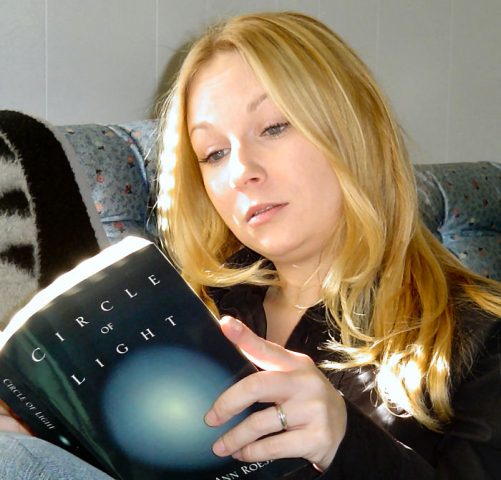How to Take Action on What You Read: Filtering and Using Information
By Ali Luke
November 3, 2009 • Fact checked by Dumb Little Man

You spend a lot of time reading. Whether it’s blogs, magazines, journals, Twitter streams, newspapers or good old fashioned books, you’ve got a huge amount of information at your fingertips. Every day, you take in tons of ideas for overhauling your life: whether it’s shaking up your fitness regime, working more effectively, or having stronger relationships.
The problem is, it’s easy to get caught up in this sea of information. You might feel inspired when you read a particular blog article, or you might get a great idea from a journal… but all too often, that thought barely gets started before the next piece of information rushes in.
So how can you make sure that you’re not just passively reading through pages of information – you’re actually taking steps to make serious improvements in your life?
Avoiding Information Overload
First off, I’d say that it’s better to read a dozen articles and really make use of them, rather than skim a hundred. If you currently have a lot of magazine and journal subscriptions, or you have loads of blogs and email newsletters that you keep track of, consider whether it’s time to cut down.
If, like many of us, you use your email and your RSS reader for business purposes and for entertainment, then try dividing up your mail and feeds into sensible categories. I have a category in my RSS reader labeled “personal development”, and keeping these in one places means that when it’s time to read them, I’m ready to make notes and take actions as necessary. If you use Google Reader, try The 10 Most Useful Google Reader Productivity Tips to make sure you’re using it as effectively as possible.
Using a Notebook (Paper or Electronic)
First, you need a way to capture those ideas. Trying to hold them all in your head just won’t work and you know it! Whenever you’re reading for information (rather than for entertainment), keep a notebook on your desk or a document open on your computer. Jot down anything that comes up: it might be a reference that you want to look up, a particular tip you want to implement in your life, or a reminder to yourself.
Simply writing something down doesn’t get it done though. We’ve all written down lists of ideas and then forgotten about them for weeks. I have a couple of ways of avoiding that: which of these would work for your projects?
- Transferring Notebook Items to a Task List, Calendar, or Diary
Every day, or every couple of days, go through the list of items in your notebook (or document) and decide how to fit them into your task list. This might mean scheduling some time in your calendar, or it might simply mean adding them to a “to-do” list.
- Use a Separate Notebook For Each Project
When your notebook jottings relate to long term projects (such as improving your company’s website or decorating your house), keep them in one document. When you come to a day or an afternoon which you’ve earmarked for that project, simply open up your document and all your ideas will be in one place.
Using Online Tools
There are loads of online tools or pieces of software which can be used to capture, track and manage tasks and pieces of information. By all means use these but make sure you’re actually using them. By that I mean that there’s no benefit in bookmarking dozens of websites if you don’t ever go back and read them or put their advice into action!
I personally like Delicious for keeping track of web pages that I want to come back to or which I think might be useful to me. Often though, I simply keep URL links in the file which relates to that particular project.
It’s very easy to end up spending a lot of time tagging, filing and organizing online materials without really taking any action. Be strict with yourself and if a particular tool is becoming a time-waster, don’t be afraid to ditch it.
Finally … Don’t Try to Take In Everything
There is far, far more information available than any of us ever have time to read. Much of this is great, authoritative, even life-changing stuff. However, if we all tried to keep up with everything, we’d never be able to actually take any actions. (Check out Six Smart Ways To Beat Information Overload if you’re struggling to stem the tide of information.)
Don’t worry about missing out: if there’s a truly life-changing idea out there for you, you’ll come across it one way or another. Ultimately, books, blogs, magazines and journals may well change the direction of your career or even your life … but only because you make the time to take conscious action.
 | Written on 11/3/2009 by Ali Hale. Ali writes a blog, Aliventures, about leading a productive and purposeful life (get the RSS feed here). As well as blogging, she writes fiction, and is studying for an MA in Creative Writing. | Photo Credit: dylanroscover |


